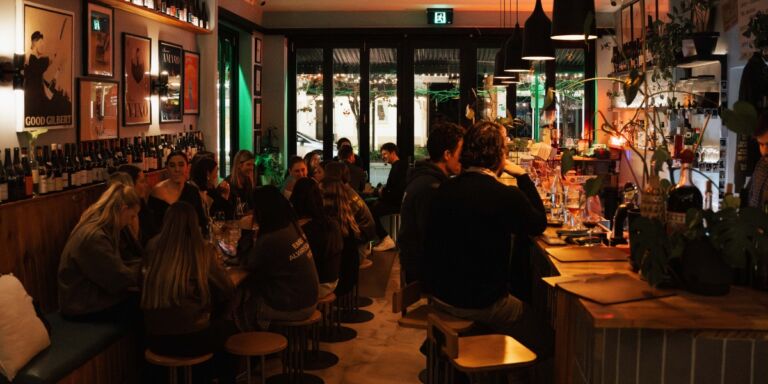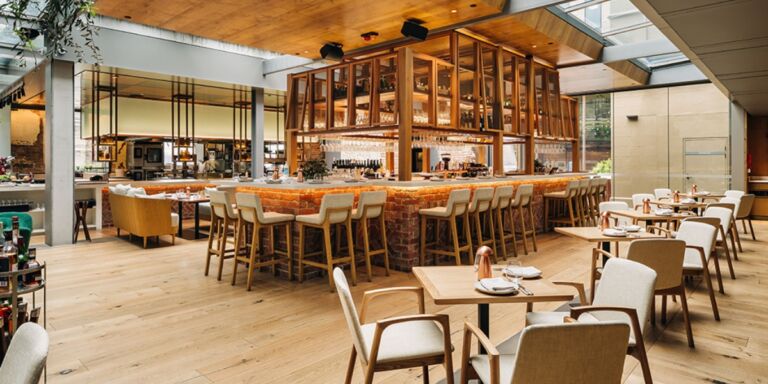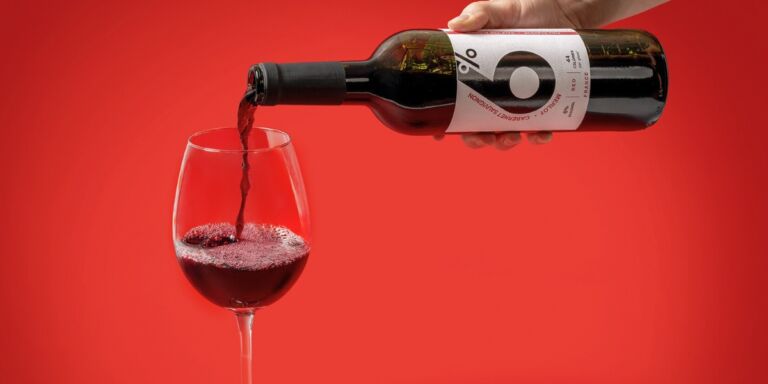Imagine the life of a sommelier over the last few months. Most of them furloughed – or worse; no work to speak of; and worries over whether they’ll have a job to come back to, and what that job and working environment might look like.
I’ve had a unique insight into their inertia, worries and ingenuity over the last 12 weeks. I’m writing a book about them and their trade for the burgeoning Académie du Vin Library, and have interviewed several of them. The exercise hasn’t quite revealed The Seven Stages of Grief, but it’s safe to say that emotions have certainly evolved.
In early March, Joshua Mullock, head sommelier at Askham Hall in Cumbria, was laying out pages of newspaper on the floor. “We’re quite lucky” he told me. “We got a new puppy two days ago. So we’re spending the whole of the next three weeks, or however long it takes, desperately trying to get it potty trained.” The enforced time off was a novelty back then. A bit of a break just for “the next three weeks”.


By mid-March, things were looking less cheery. Zigmars “Ziggy” Grinbergs and I had met a few weeks before at Chelsea’s French restaurant Medlar, where he’d been happily opening an eclectic collection of bottles for a La Paulée dinner. But now he sounded very different. Glum even. “There’s not much happening at the moment. Like everyone else, I’m sitting at home, just looking outside at the glorious weather.” He was taken aback at how quickly it all escalated. “A week ago, we were thinking it would pass over pretty quickly. I was much more optimistic. Now it feels like everything is closing down – and it doesn’t seem to be subsiding at all.”
By the end of March, sommeliers faced less uncertainty – but not necessarily in a good way. “We’ve all just been made redundant,” said Beatrice Bessi, until then head sommelier at Chiltern Firehouse. “Those of us who have worked for less than two years… they just gave us our notice. I’ve been given a longer notice period because I was a department head. So… yeah… errm…”. She pauses. Beatrice is a single mother; a lone bread-winner, isolated from her family in Italy. Listening back, there’s a long silence on the recording. “Nothing else to report, really.”
Not everyone faced the worst. Giuseppe D’Aniello of Berners Tavern had just come off the phone from a virtual team meeting with Matteo Montone, his head sommelier, when I spoke to him. “We have a small decrease in our salary and we stay home for the next two months,” he said, seemingly resigned to the situation. Not happy; not devastated. “We were on the phone to see how everyone is”, he added, describing the beginnings of an informal support system. Matteo had apparently come up with an idea to do something on Instagram – “Stay tuned!”
Amber Gardner from Davies and Brook at Claridge’s was defiantly upbeat too. She’d been staying in touch with wine-trade colleagues, but there was no hiding the fact that the momentum of being a young sommelier, in a new opening, in one of London’s grandest hotels is tough. “It’s been incredible” she says. “Working at that level at a restaurant that’s aiming to have three Michelin stars. To be at one of, if not the best restaurant in the UK is pretty intense. It’s been a whirlwind… a baptism of fire.” Now she’s reading, she says. And studying. And keeping up with friends on Zoom. What else is there to do?


By early April we were starting to see. Matteo Montone – Giuseppe’s boss at Berners Tavern – was regularly conducting wine tastings on Instagram. Each one a masterclass in how to perform in sommelier competitions – witness the methodical, logical approach that won him World’s Best Young Sommelier in 2019. His tone changes as the weeks pass, gradually becoming more upbeat, and less constrained by confinement. “Hello everyone” he always starts. “Unfortunately, I am in lockdown” becomes “I’m in lockdown” to “today, I’m in South Africa with a very charismatic producer”.
By May, some sommeliers had found new ways to ply their trade. Or at least their expertise. I hear through the grapevine that some sommeliers are offering their services to private clients – with great success. Some are now doing so well they’re even wondering if they’ll go back to the floor. It takes me a couple of tries to get to Clement Robert MS. He still has work to keep ticking over as buyer for Caprice Holdings Limited, owner of Annabel’s, among other A-list clubs and restaurants. And for him and his wife Kathrine Larsson – also an MS – there’s home schooling for her son to keep on top of too. He seems positive. Then, in June, one of the group’s flagships – Le Caprice itself – announces its permanent closure.
Busiest of all is Ronan Sayburn MS of 67 Pall Mall. We squeeze in a chat between his team briefing and the five virtual tasting masterclasses he’s hosting today. “We’re doing these webinars,” he says. “At twelve, two, four, six and eight. I’m at my computer by 8.45 in the morning and I don’t get up from it until 9.15 at night.” I ask how it works. “We’ve got this bottling line set up. We use this kind of fish tank, filled with 75ml sample bottles that are all washed in alcohol, and the whole thing’s filled with argon. We can open full bottles inside the fish tank, and we’ve got balloons floating on the top so we know what the level of argon is. We pour out the wine into the sample bottles with no oxygen contact whatsoever…. we must have done 15,000 bottles so far.” The initiative has allowed the club to retain 130 staff on their full salaries, and keep the club ticking over. “Most of the sommeliers are in the club, doing the bottling.”
If there’s a defining characteristic of sommeliers – beyond a love of wine – it’s that they’re people who could succeed elsewhere, but chose the challenge of wine and service. They’re resilient. Inventive. Determined. This lockdown is the toughest challenge the profession has faced since Prohibition. Sommelierie might well look very different when it returns, but if the last few months have convinced me of anything, it’s that it’s a métier that will survive.





